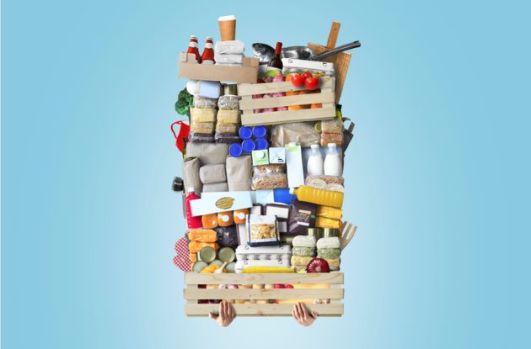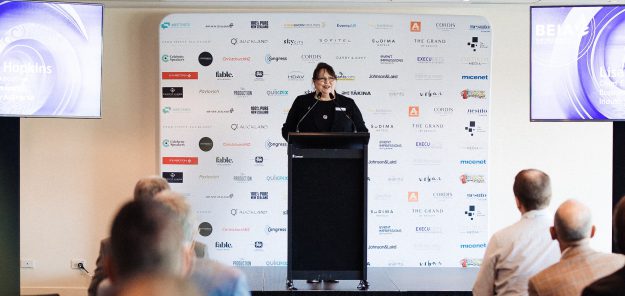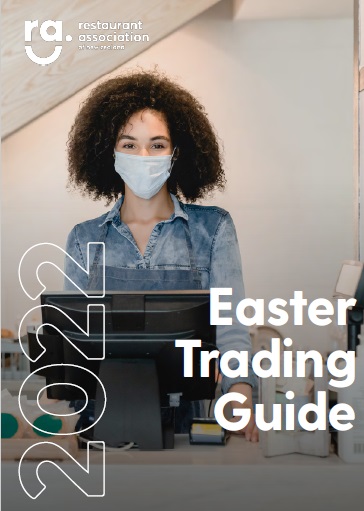FOR SALE: Alberto’s Restaurant, Cook Islands
Alberto’s offers casual dining with a cosy atmosphere and a welcoming menu.
Situated on the western side of the island (between the Edgewater Resort and Sunset Resort) Alberto’s is on the main road in the beautiful village of Arorangi and within walking distance of the Edgewater and Sunsets Resorts.

Loved by visitors and locals alike, Alberto’s offers an la carte menu, cocktails, refreshing beverages and the local “Cooks Lager” on tap. A popular Asian Takeaway is situated at the front of the establishment.
Current owners are retiring after 17 years of successful operation, so Alberto’s is ready for new owners to put their own stamp on this iconic dining establishment.
Sold as a going concern.
Email carey@cookislands-realestate.com for more information.
Carey Winterflood
COOK ISLANDS REAL ESTATE
Aust Office +61478568642
Who will win the Nestlé Golden Chef’s Hat Award 2022?
The 2022 Nestlé Golden Chef’s Hat Award will showcase talented young New Zealand chefs and their skills and ignite their culinary careers.
Regional and final cook-off heats are back, with prizes at every stage. Fifteen regional cook-offs will be held across New Zealand and Australia to select the top 12 grand finalist chefs for 2022. Finalists will represent their regions in the ultimate culinary showdown at Fine Food Australia, in Melbourne this September.
#gc2022 will also see more prizes to be won. In addition to the ultimate Golden Chef of the Year $10KAUD cash prize, two new $2.5KAUD culinary tuition cash prizes for Best Savoury Dish and Best Dessert Dish have been created. These prizes will recognise the individual skills of the young chefs and contribute towards completion of their culinary tuition fees.
Chefs aged 16-25 entered online and will be selected to cook-off live, going up against their culinary peers in the regional heats, to select the 12 finalist contenders.
Last year’s Golden Chef of the Year winner was Kimberly Tang from Australia.
In 2020, New Zealander Sam Heaven took out the coveted award when the door was first opened to entrants from New Zealand.
Twelve entrants (one per region) will be awarded with a prize and invited to participate in the Grand Final cook-offs which will occur in Melbourne between 3-8 September 2022 (date/location is subject to change). There are five prizes to be won during the Grand Final cook-offs. Total prize pool $20,588.
For more information on the competition, visit https://www.goldenchefs.com.au/competition-info/terms-and-conditions
Stay tuned for the announcement of this year’s winners!
Highest annual food price increase in over 10 years
Food prices were 7.6 percent higher in March 2022 compared with March 2021, Stats NZ announced today.
This was the largest increase since the year ended July 2011 when prices increased 7.9 percent, then partly influenced by a GST increase from 12.5% to 15% in October 2010.

Food price increases were widespread in the year ended March 2022 with increases in all categories that Stats NZ measure:
- grocery food prices increased 6.7 percent
- fruit and vegetable prices increased 18 percent
- restaurant meals and ready-to-eat food prices increased 5.1 percent
- meat, poultry, and fish prices increased 8.7 percent
- non-alcoholic beverage prices increased 2.7 percent.
“Average prices for vegetables like tomatoes, broccoli, iceberg lettuce, and cabbage were notably higher than they were in March 2020 and 2021,” consumer prices manager Katrina Dewbery said.
Food price increases were widespread in the year ended March 2022 with increases in all categories measured by Stats NZ.
Grocery food prices increased 6.7 per cent, fruit and vegetable prices increased 18 per cent, and restaurant and ready-to-eat food prices increased 5.1 per cent.
Prices for meat, poultry, and fish prices rose 8.7 per cent while non-alcoholic beverage prices increased 2.7 per cent.
“Average prices for vegetables like tomatoes, broccoli, iceberg lettuce, and cabbage were notably higher than they were in March 2020 and 2021,” Stats NZ consumer prices manager Katrina Dewbery said.
“There were also higher prices for dairy products like two-litre bottles of standard milk and one-kilo blocks of mild cheese.”
These increases were partly offset by decreasing prices for avocados, boxed chocolates, and bacon.
Monthly food prices rose 0.7 per cent last month compared with February.
After removing regular seasonal impacts, food prices rose 0.4 per cent. This means that the price increase in the unadjusted series was greater than the expected seasonal increase from February to March.
Grocery food prices were the main contributor to the monthly increase, mainly influenced by higher prices for yoghurt, canned spaghetti, chilled meat pies, and even tomato sauce, Dewbery said.
Fruit and vegetable prices rose 1.2 per cent in March, influenced by higher prices for cabbage, tomatoes, strawberries, and kumara.
“The average price of cabbage increased 28 percent in March, from $3.92 to $5.03 per kilogram,” Dewbery said.
Meat, poultry, and fish (up 0.9 per cent), non-alcoholic beverages (up 0.9 per cent), and restaurant meals and ready-to-eat food (up 0.3 per cent) also contributed to the rise in March.
7k signatures and local support saves Napier cafe
The French proprietors of Napier CBD eatery, Cafe Tennyson have been granted permanent residency following a battle to be allowed to remain in New Zealand.
Julien and Sophie Debord, along with their two young children arrived in New Zealand late in 2018, with an entrepreneur visa which was pending cancellation by Immigration New Zealand due to the Debords not meeting their business plan and targets, set prior to the pandemic.
They received good news last Friday and will be able to remain in New Zealand and carry on the Tennyson St business.
Batting for them were Napier Mayor Kirsten Wise, Napier MP Stuart Nash, the National Party’s Hawke’s Bay oversight MP, Louise Upston, and Napier City Business general manager Pip Thompson, who said the Debords were committed to riding the Covid storm for their loyal locals and stayed open facing the obvious, a major decline in revenue and huge staff shortages.

The Mayor, MPs and Thompson were among those who wrote letters to immigration ministers, with data showing Napier City-wide’s decrease in foot traffic and revenue related to café and hospitality turnover in Napier in the last two years. Thompson says it has been an exceptionally difficult environment in which to achieve pre-Covid turnover levels.
Thompson says New Zealand CBDs have suffered from many business services working from home and the reality and fear of Covid-19 and Omicron. While working from home more is “here to stay”, she hoped as the peak of the current wave passes more people would strike a good balance between working from home and spending a few days a week back in the office in town.
According to a Napier City Business media release, local business owner and regular cafe supporter Kathryn McGarvey said the Debords are kind, friendly, hard-working people and only wanted them to be given a fair go
She created an online petition of more than 7300 signatures, which was presented to Green Party List MP Dr Elizabeth Kerekere who later tabled the document in Parliament.
Nash, also the Minister of Tourism, said delays in reaching the result were around the café proprietors having not met all the obligations of the specific rules and a need to complete a process before exemption could be applied for and decided.
He said one of his own staff had extensive immigration services experience and, seeing that the impacts of Covid crisis were valid reasons, the office campaigned – “possibly more than for any other constituent I can remember” – for the family to be able to continue in New Zealand.
On the cafe’s Facebook page, Julien Debord said on: “There aren’t enough emojis to express how we all feel. And there will never be enough thanks to everyone who supported us, customers, staff, suppliers, friends, family, businesses… and the more than 7k signatures we got on the petition, which made a big difference.”
Napier City Business Inc General Manager Pip Thompson says, under the Debords’ ownership, the cafe quickly became a Napier City icon, an institution, bustling daily with local business people, families, and visitors. Their clean, fresh french flair added to the vibrant cafe culture Napier is so well known for now and prior to the COVID-19 pandemic. The Debord’s were committed to riding the COVID storm for their loyal locals and stayed open facing the obvious, a major decline in revenue and huge staff shortages.
To support the Debords fight for residency Thompson acted quickly by engaging her community in supporting the Debord’s. She reached out to her business association members, local leaders, Mayor Kristen Wise, and Napier City Councillor Sally Crown who all wrote letters to immigration ministers along with National MP for Taupo Louise Upston. The ministers were also presented with the data showing Napier City-wide’s decrease in foot traffic and revenue turnover. Foot traffic (average decrease of 23% in 2020 and a further 12% in 2021 with a total of -33% and the impact of Omicron is a combined total of -52%) Given there is an 85% correlation between foot traffic and café/ hospitality turnover in Napier, the last 2 years have been an exceptionally difficult environment in which to achieve pre covid turnover levels.
Local business owner and regular cafe supporter Kathryn McGarvey said the Debords are kind, friendly, hard-working people and only wanted them to be given a fair go. McGarvey created an online petition which quickly gained more than 7300 signatures. The petition was presented to Tairāwhiti Green List MP Dr. Elizabeth Kere Kere who tabled the document in Parliament the following week.
The last two years have been exceptionally tough and uncertain for business, especially retail and hospitality. Thompson says CBDs have suffered from many business services working from home and the reality and fear of Covid-19 and Omicron. “Whilst we recognise that working from home more is here to stay we hope as the peak of the current wave passes more people will strike a good balance between working from home and spending a few days a week back in the office.
“With the borders reopening, domestic and international travel becoming more comfortable, and cruise ships returning, CBDs need retail, businesses, and cafes like the Debord’s. They all create an essential part of the vibrancy of our iconic city.”
Exciting Orange times for tourism as we welcome back Aussies
New Zealand tourism operators are ready with open arms to welcome back Australian visitors, says Tourism Industry Aotearoa Chief Executive Rebecca Ingram, as New Zealand also moves to level Orange in the traffic light system at 11.59 pm tonight.
As New Zealanders adjust to the new Orange regulations, including no vaccine passes, mask free customers and no seated and served regulations, Australians can now travel here quarantine free. They will be followed on 1 May by guests from visa waiver countries, including the USA, UK, Europe, Japan, Korea and Singapore – bringing to an end two years of border restrictions.
“This is an exciting time for tourism businesses around the country as they step forward, setting their sights on a successful ski season, then summer 2022-23,”
Ms Ingram says.
Restaurant Association relieved
“The industry is reporting forward bookings are gaining momentum, and there’s definitely a more positive feeling about the future and the opportunities to rebuild businessess,” says Marisa Bidois, Restaurant Association CEO.
“The move to orange is a huge relief for the hospitality industry which continues to struggle under the red level restrictions.
“The removal of the seated and separated rule along with increase to gathering numbers is a major step forward in our path to revival and recovery,” says Marisa Bidois.
“Our March member feedback survey indicated that businesses continue to struggle with 90 per cent of respondents saying their revenue is down on 2021 with the average revenue decrease sitting at 34 per cent.
“Many diners continue to stay away at the red level so we are hopeful that the removal of number limits and the seated and separated rule will give a boost to consumer confidence and ease some of the challenges our industry has been facing.

“Hospitality venues are places we go to relax and often to socialise with others, particularly in bars and clubs so to know that people are now able to do that will be very welcome.”
Christchurch Airport Manager, Communications, Yvonne Densem says both Air New Zealand and Qantas have added additional services into Christchurch this week, and almost all 16 flights are full, with more to come.
“Our view is the attractions of the South Island are all still here and ready for visitors. We are looking forward to saying ‘welcome back cobber!’ more often.”
GO Rentals is experiencing good bookings for the upcoming school holidays in April and also for the ski season in July, especially out of the Queenstown office, says Chief Operating Officer James Daglish.
“Internationally, we are seeing great business from Australia, with solid business already coming through from Europe. Other international markets are still a little reserved at this stage.”
Accor Pacific Chief Executive Officer Sarah Derry says people love to travel, and the hotel provider has seen a steady increase in bookings since the 16 March announcement that Australians can visit New Zealand again.
“The increase is driven by Queenstown and Auckland destinations. Bookings in April reflect a desire for Australians to reconnect with family and friends as soon as possible, and we are seeing booking trends which suggest Australians want to make the most of the upcoming winter ski season in Queenstown.”
Ms Ingram says the opening of the borders will breathe life into New Zealand’s cities and communities.
“Tourism is not an island – it’s connected to so many parts of our economy and our communities and the return of visitors will make a positive difference to many people.”
As tourism gears up to reconnect with the world, she thanked New Zealanders who have helped keep many businesses across the motu afloat over the past two years by trying new experiences and exploring destinations they hadn’t visited previously.
“Kiwis are such an important part of our tourism industry, not just as domestic travellers, but because of the manaakitanga and warm welcome they extend to international visitors.”
Ms Ingram say TIA anticipates a slow and steady return of visitors, with people visiting friends and family first following by Australian and US visitors.
“We know there are people around the world who have continued to dream about a holiday in New Zealand, however TIA’s Recovery Roadmap suggests it could be 2-3 years before we find our ‘new normal’, meaning new levels of demand and travel patterns.”
Competition hots up for the Great Kiwi Toastie judging
The Great New Zealand Toastie Takeover, the nation’s premier toasted sandwich contest, is back for a fifth year and commences today ready to titillate taste buds right around the country.
The popular competition has been steadily gaining momentum, with last year’s contest attracting more than 120 entries and serving up an incredible 80,000 gourmet toasties. But those numbers have taken off for 2022, with 185 venues participating from Waitangi in the north to Lumsden in the south – an increase of 53% on last year.

This year’s entries are a mix of iconic eateries and local gems, made up of bars, restaurants, cafes, a boutique hotel, an iconic cinema, breweries, food trucks, hole-in-the-wall serveries, a winery and even an RSA. Other unique entrant locations include a bowling alley, salmon farm, destination cheese store, and the Bluebridge Cook Strait ferry. For more information and the full list of participating venues by region, see toastietakeover.com.
The competition rules remain the same as previous years. Each toastie must be sandwiched between two slices of bread and able to be eaten by hand if necessary. The toasted sandwich must also contain cheese (or an acceptable vegan substitute) and pickles from the McClure’s Pickles range. Everything else is up to the toastie maker’s imagination – and those imaginations have certainly been in overdrive this year.
A wide array of ingredients can be found across the entries in 2022, including brisket, bacon hock, buttermilk chicken, beer-poached beef, lamb chops, and venison mince, while entrants have been equally adventurous with their toastie condiments – think homemade feijoa BBQ sauce, peanut butter, caramelised banana, confit beetroot, and the quintessential Kiwi onion dip.
The trend towards vegetarian or plant-based entrants also continues, with 17 vegetarian and six vegan entries, with ingredients like vegan black pudding, plant ‘pastrami’, and cauliflower and facon bits on the menu. A keto toasted sandwich entry has also made the cut this year.
With Easter and the school holidays looming, it’s the perfect time for Kiwis to hit the road and check out a few of the entries, with a list of the competing eateries and a description of their toasted sandwich creations available at toastietakeover.com.
Last year’s Great NZ Toastie Takeover was won by Steve MacDougall from Mollies in Blenheim with his Mo Jo Pork Cuban with a Twist. With slow roasted pork belly, provolone, chimichurri, American mustard, McClure’s Pickles, and apple chilli gel slathered between toasted sourdough and served with kumara crisps, the sandwich was a true standout for customers and the competition judges.
The People’s Choice Award, which was awarded to Toastie Picton last year, will also return in 2022, giving Kiwis the power to vote for their favourite participating eatery and toasted sandwich. More information on the People’s Choice Award can be found at the competition website.
Judging begins tomorrow (Wednesday, April 13), with the 12 finalists from each of the six competition regions revealed on June 22. The supreme winner will be revealed on July 27.
A group of approximately 30 judges overseen by head judge Kerry Tyack will be casting their eyes (and taste buds) over this year’s entries. Judging will be split into the following six regions: Auckland/Northland; Waikato/Bay of Plenty; Central North Island; Wellington/Lower North Island; Upper South Island (including Christchurch and West Coast); and Lower South Island.
Each toastie will be scored on a set criteria, including presentation, effectiveness of preparation technique, eatability, taste, innovation, and originality. The competition’s grand toastmaster and McClure’s Pickles founder, Detroit based Joe McClure, will then visit the finalists to sample the entries and liaise with Tyack to determine New Zealand’s top toastie for 2022.
McClure says he’s humbled by the number of entries, especially given the tough couple of years the hospitality industry has faced.
“What an incredible list of entries – I’m blown away by the sheer number and the quality of the entrants, as well as the time that has gone into developing some innovative and incredible sounding toasted sandwiches. Covid-related restrictions permitting, I’m really looking forward to returning to one of my favourite countries to judge the top toasties in June.”
All Great NZ Toastie Takeover finalists will receive a case or pail of McClure’s Pickles and dine-in vouchers to give away to locals via social media. The People’s Choice winner will also receive a case of McClure’s pickles and dine-in vouchers.
The supreme winner will walk away with a year’s worth of pickles, more dine-in vouchers, a toastie trophy and, most importantly, bragging rights to the best toasted sandwich in the country.
Previous competition winners include Steve MacDougall from Mollies, Hotel D’Urville in Blenheim (2021), Romeo Dowling Mitchell from Hungry Hobos Dunedin (2020), and Joseph Walker from the Hokitika Sandwich Company (2019).
For more information and the full list of participating venues by region, see toastietakeover.com. Follow @cookandnelson on Instagram for regular competitions and updates.
26th MEETINGS buyers head to Te Pae Christchurch
New Zealand’s premier business events tradeshow, MEETINGS is heading to the newly completed Te Pae Christchurch Convention Centre and event organiser registrations are open for June 15 and 16.
Run by Business Events Industry Aotearoa (BEIA), MEETINGS is now in its 26th year, and over 200 hosted buyers from Australia and New Zealand are already signed up for the pre-scheduled appointment programme.

They can meet exhibitors from 18 regions across more than 200 stands at Te Pae. Chief Executive Lisa Hopkins says MEETINGS is unmissable for anyone who organises business events.
“This is a once-only opportunity for those planning their next business event to discover all of New Zealand in one day, with the incredible bonus of being able to visit the South Island and experience Ōtautahi and New Zealand’s newest venue. At no other time will they see such a diverse range of New Zealand destinations, venues, hotels, activities and services all in one place,” Hopkins says.
“The day buyer programme is ideal for event planners who prefer to come independently without any pre-scheduled appointments. They will receive a swag of benefits, including registration, free airport transfers, lunch and refreshments throughout the day, professional development and knowledge sessions.
“Our MEETINGS guests will be among the first to experience New Zealand’s next-generation venue – Te Pae Christchurch Convention Centre – in action, and check out the exciting new city in its beautiful riverside setting,” she says.
“If they would prefer two days, our host hotels have great rates for anyone who wishes to stay overnight.”
ChristchurchNZ head of Business Events, Megan Crum says Christchurch is excited to welcome event organisers from across New Zealand and Australia.
“Christchurch is such an epic conference destination, and we can’t wait to show everyone why it’s the perfect place to meet,” she says.
“Flying in across the snow-laden Southern Alps will be a bucket-list experience in itself. From the moment they arrive, we will be ready with an exceptionally warm welcome at Christchurch Airport, and from there it’s just a short and scenic drive to the new city centre,” Crum says.
Day buyers who register to attend MEETINGS in Christchurch can choose to attend professional development sessions relevant to business events, plus the Celebrity Speakers Showcase packed with New Zealand’s best speaking talent. The Tourism New Zealand Regional Showcase will be a valuable chance to learn what’s new in each of the regions.
Fully hosted buyer applications close on April 14. The MEETINGS Hosted Buyer experience includes a personalised diary of exhibitor appointments as well as complimentary air travel, accommodation, registration, and networking events.
MEETINGS day buyer registrations are now open at www.meetings.co.nz/daybuyer.
Hosted buyer applications can be made online before 14 April at https://www.meetings.co.nz/hosted-buyer-programme.
Litany of improvements needed for hospo front line
A newly released research paper undertaken by AUT gives voice to front line hospitality workers, and highlights unfair and illegal practices amongst the industry.
Dr David Williamson, lead author of the study, entitled Voices From The Front Line says the majority of employers are doing the right thing but there is a significant minority of workplaces that are failing to comply with employment law and failing to provide decent work conditions.
The research paper included a survey of 396 hospitality workers and found that: –
• 16% had not signed an employment agreement before starting work
• 13% were not receiving the correct payslips
• 18% were not receiving the minimum wage
• 22% did not get the correct holiday pay
• 22% were not getting time off or correct pay for working statutory holidays
• 22% were not receiving the correct rest breaks
• 81% stated they received no training in their jobs
• 48% did not get opportunities for promotion
• 49% experienced or witnessed harassment in the workplace
• Owners and managers or supervisors were responsible for 40% of the reported harassment
• 49% did not report harassment incidents
• 69% were aware of health and safety risks in their workplace
• 10% belonged to a union
• 29% are in temporary/casual employment
The researchers say that support and firm direction from employer groups, unions and government is needed to tackle these issues.
It gives three priorities for change: Driving out the minority of bad employers, ensuring decent employment practices in the industry, and changing the image of hospitality work.
Removing the bad employers could be done with better systems of enforcing employment conditions in a timely and effective manner, it says. Organisations that represent employers should name and shame, to support most of their members who are doing the right thing. Having an employer ranking system displayed for customers would allow them to make choices to support good working conditions.
The researchers say that to ensure decent employment there is a need to focus on pay and conditions, training and development, and enabling employees to speak up on things like lifting service quality and employment standards.
The negative view of hospitality work also needs to change to overcome recruitment and retention problems – but this can only happen after the industry has been cleaned up, the report says.
Voices From The Front Line was headed by Dr David Williamson from AUT’s School of Hospitality and Tourism, with Professor Erling Rasmussen from the New Zealand Work Research Institute at the University, and research assistant Camille Palao.
The survey was drawn from people who were members of online networks and groups associated with the hospitality industry.
It was run in late 2019 and early 2020, partly during the exceptional times of Covid-19. However, the findings align with historical work experience problems in this sector, Williamson says.
Voices From The Front Line is part of an international cluster of researchers running the survey in Scotland, Ireland, Norway, Sweden and Australia.
In the latest Times Higher Education university rankings, AUT ranked first in Australasia for its global research impact.
Voices From The Front Line can be downloaded here.
Trading over Easter?
Each year working and trading over Easter provides challenges and questions for the hospitality industry.
Only Good Friday and Easter Monday are public holidays. Easter Sunday is not a public holiday, and you can choose to open if local councils allow.
In order to simplify and explain the rules and protocols for employees and employers the Restaurant Association of New Zealand has provided the following guide for hospitality businesses.

NZ Bakels postpones 25th Pie Awards to 2023
NZ Bakels has announced that the 25th Bakels NZ Supreme Pie Awards has been deferred until next year; a difficult decision made out of respect for the baking sector.
The 25th Bakels NZ Supreme Pie Awards will now take place on 1 August, 2023.
NZ Bakels Managing Director Brent Kersel says: “While bakeries are working incredibly hard to get back on their feet after two years of Covid, there are many other factors impacting on their businesses, very much as it is in any business right now. And while we look forward to celebrating our 25th anniversary of the largest and longest running food competition in New Zealand, it is only prudent that we give our bakers some time to adjust to the changes that the pandemic and unrest in Europe have created.

“We know how important the Supreme Pie Awards are to bakers. It is a competition that has huge ripple effects as soon as we start talking about it. Consumers start thinking about pies, and buying them, and bakers start developing new recipes, promoting that they are entering and from there excitement grows.
“When the Supreme winner is announced the response is massive! And for NZ Bakels it is the highlight of the year with everyone supporting the bakers to give them a chance of winning. We are passionate about what we do and I’m proud of what we achieve, but we certainly couldn’t do it without our bakers; we’re a team, a family of pie fans. And right now we all need a bit of a pause.”
Kersel encouraged consumers to keep supporting their local bakery. “We’re a nation that chooses baked goods above anything else when it comes to a convenience meal. And even though we’re all feeling the pinch of price increases across the board, a pie or other bakery item is still the best value for your dollar. Long may that continue!”

